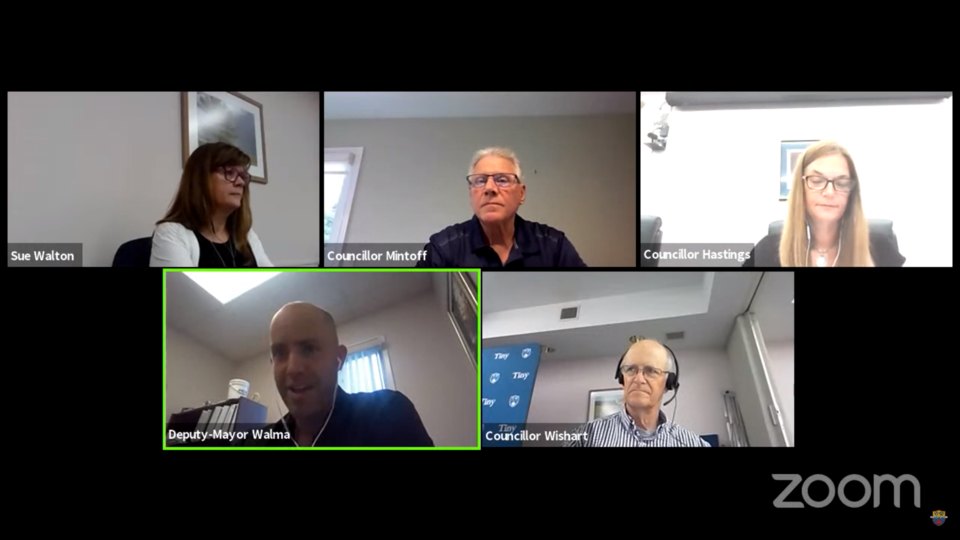In discussing a possible rebate for those running in elections for Tiny council terms, deputy mayor Steffen Walma spoke up last week on behalf of a younger demographic who could be otherwise dissuaded from entering the political arena because of prohibitive campaign costs.
During the committee of the whole meeting, a report was pulled by Walma regarding a municipal elections contribution rebate program which staff recommended not be implemented for the upcoming 2022 election due to resource and cost constraints.
Historically, of Ontario’s 444 municipalities, only eight implemented a contribution rebate program for their 2018 elections as a rarely-used tool funded by the general tax levy.
Walma explained that a candidate running for a municipal election can collect donations to help fund a campaign. A donor to a federal or provincial party would receive 75% of the contribution back during tax time, but a municipal donation receives no such tax incentive.
“I think this is a way to level the playing field in an election aspect, making elections more affordable for those otherwise not able to do so,” said Walma, “so that an 18-year-old working at Canadian Tire can afford to run a campaign, instead of a retired individual.”
In response, Coun. Tony Mintoff cited his own experience with election costs, conveying that municipal elections are much less costly than higher tiers of government.
“Unlike the provincial and federal levels of government where it seems like it can be a lot of money to run for office, at the municipal level, thankfully, I don’t think it takes a lot. I use my own experience whereby the purchasing of my signs and the advertisements that I made came to less than $2,000,” explained Mintoff.
Coun. Gibb Wishart, a six-time candidate for elections, agreed that campaign costs are low, and lower still as technology allows for candidates to utilize social media platforms during the run.
Walma understood their positions but pivoted to talking about age demographics and diversity in council, and the importance of making a council seat attainable to young people.
“And $3,000, which is a low end for running a campaign -- I’m pretty sure that mine in 2014 was just over $5,000 -- that is a lot of money. My first vehicle cost me that much money. Like, that’s a big amount of money to a young person,” stressed Walma.
The haste of bringing the item to council for discussion was prompted by its nature; had council chosen the staff-recommended option to not go through with the rebate program for the 2022 election, that would have ended the discussion with certainty.
Coun. Cindy Hastings recognized the importance of the matter and asked council for other ways to keep the discussion ongoing.
One suggestion from Walma was to put some of the election reserve fund aside to allow for a Tiny-run rebate program much like the eight municipalities during the 2018 elections.
Mintoff, with CAO Robert Lamb, offered to have staff reach out the Association of Municipalities Ontario (AMO) and the Federation of Canadian Municipalities (FCM) which would inform council early into their next term rather than nearing the end of its term as is the current case.
Mintoff brought up the possibility for boards of education to bring political science into high school curriculum, encouraging senior students through interest and awareness. He also mentioned a shadowing program for students to gain insight into the political process, all of which caught Hastings’ favour as “excellent suggestions.”
“I’ve been thinking about it for awhile,” said Hastings, “since we had the younger students -- not the high school students but the younger students -- into the council chambers, pre-COVID, trying to engage them. Maybe that’s something that we as individual council members need to put our minds to: being in their roles.”
An amended motion was unanimously passed for the staff recommendation to not implement a rebate program, but to also wait to hear back from AMO early in the next council term.
Schedules for Tiny meetings are available on the council section of the township website. Meetings are streamed live and archived on the township of Tiny YouTube channel.



